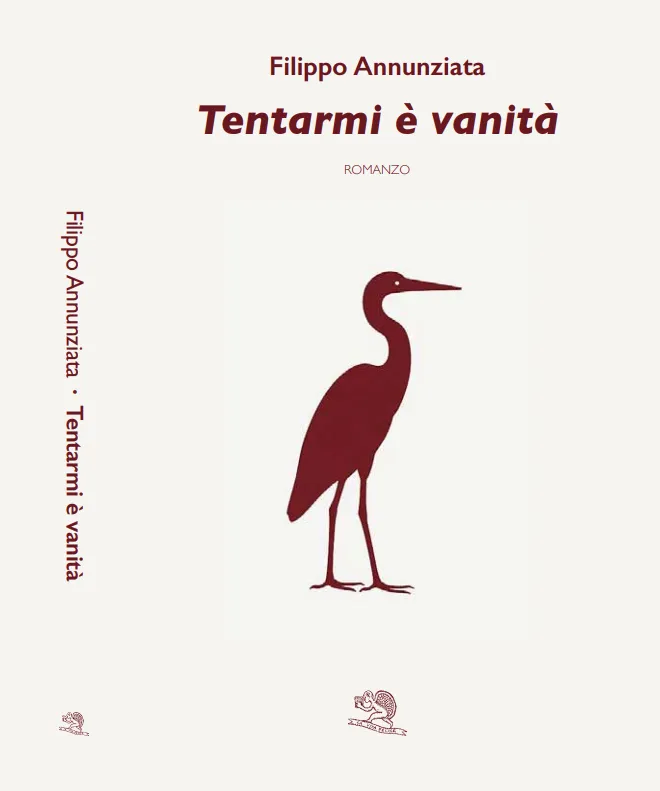
Tentarmi è vanità, the Second Novel by Filippo Annunziata
Venice and the writer himself. There is something autobiographical about Filippo Annunziata’s second novel. One example is the Full Professor of Financial Markets and Banking Legislation at Bocconi’s Department of Legal Studies’ favorite city, where he spends much of the year, "as if suspended in another time and in another dimension." This is how Annunziata describes the magical atmosphere that reigns in the lagoon city, despite all the known difficulties and problems. Tentarmi è vanità (‘To Tempt Me Is Vanity,’ published in Italian by Edizioni La Vita Felice) takes place in this picturesque and unique environment: "It describes what most travelers feel when the train from Mestre crosses the Ponte della Libertà, passes over the lagoon and enters another dimension. Suspended between land, sky and water, with the mountains faintly visible to the left and the lagoon stretching toward the Lido on the right, the train truly seems to float in mid-air. And it describes what many have confirmed to be a transformative experience — one that, in just a few minutes, takes you to a place where the time, people and experience feel worlds away from life in a large metropolis like Milan," says Annunziata.
A well-rounded novel
His second novel is very different from his first, Obiter Dicta, set in the legal world, whose main target is perhaps anyone with his legal background. "Tentarmi è vanità is a complete, well-rounded novel that tells two intertwined stories featuring two young researchers. The first came to Venice from Milan to study 17th-century Venetian opera houses. The second is the Director of the Gallerie dell'Accademia’s right-hand man, working on a project to tokenize what is probably the most important painting from the Venetian Renaissance, Giorgione's The Tempest." The two stories, set in a Venice suspended between reality and dream and woven around a web of emotional relationships, share a common theme: the relationship between art, markets and technology. And here another important side of Filippo Annunziata emerges, his love for music, theater and especially opera, alongside his broader passion for art in all its forms.
Giuseppe Verdi, the great 'litigator'
Though it may be a little surprising, Annunziata has been studying the relationship between law and opera for many years now, thanks to his training as both a musicologist and jurist. "A rather innovative work of mine is expected to be published in the early months of 2026. It’s a kind of portrait, a narrative of a series of major legal cases that have marked the history of opera theater, featuring composers, librettists and theater managers as protagonists, including Verdi, Donizetti and great French authors. It also extends to more recent issues that touch on disputes related, for example, to the use of artificial intelligence, the cloning of singers’ voices and other matters that make it possible to interpret, through an interdisciplinary lens, the evolution of the history of opera theater and its systems of production and circulation,” he explains. He also shares an anecdote about one of the most important figures on the Italian opera scene: "Few remember that Giuseppe Verdi was a great litigator, he repeatedly took part in legal disputes, both initiating and facing lawsuits, especially in France. This was both in an effort to assert himself and obtain recognition of his right to receive royalty payments, and to explore new ways of developing and composing his works that would allow him to collect earnings that would otherwise not have been paid, given that the legislation of the time offered inconsistent protection to authors."
Jurist and humanist, a very close relationship
The novel has a number of autobiographical reflections. Were they intended? "I would say no," explains Annunziata. "I didn't want to talk about myself, I don't think I would even be able to. I wouldn't know, for example, how to write an autobiography. Any personal information that’s there emerges spontaneously in my writing." It is not uncommon for jurists to write books that do not deal with their field of study: poetry, fiction, non-fiction. Why? "The relationship between jurist and humanist is a necessarily close one," Annunziata continues. "Throughout history, there have been countless cases of jurists who became musicians or writers. I believe that legal professionals who are confined within their own world are disadvantaged by this to some extent. Conversely, a passion for music, art or literature — for something broader — makes a jurist a complete humanist. From my own experience, I have learned that the greatest jurists have always also been great humanists."